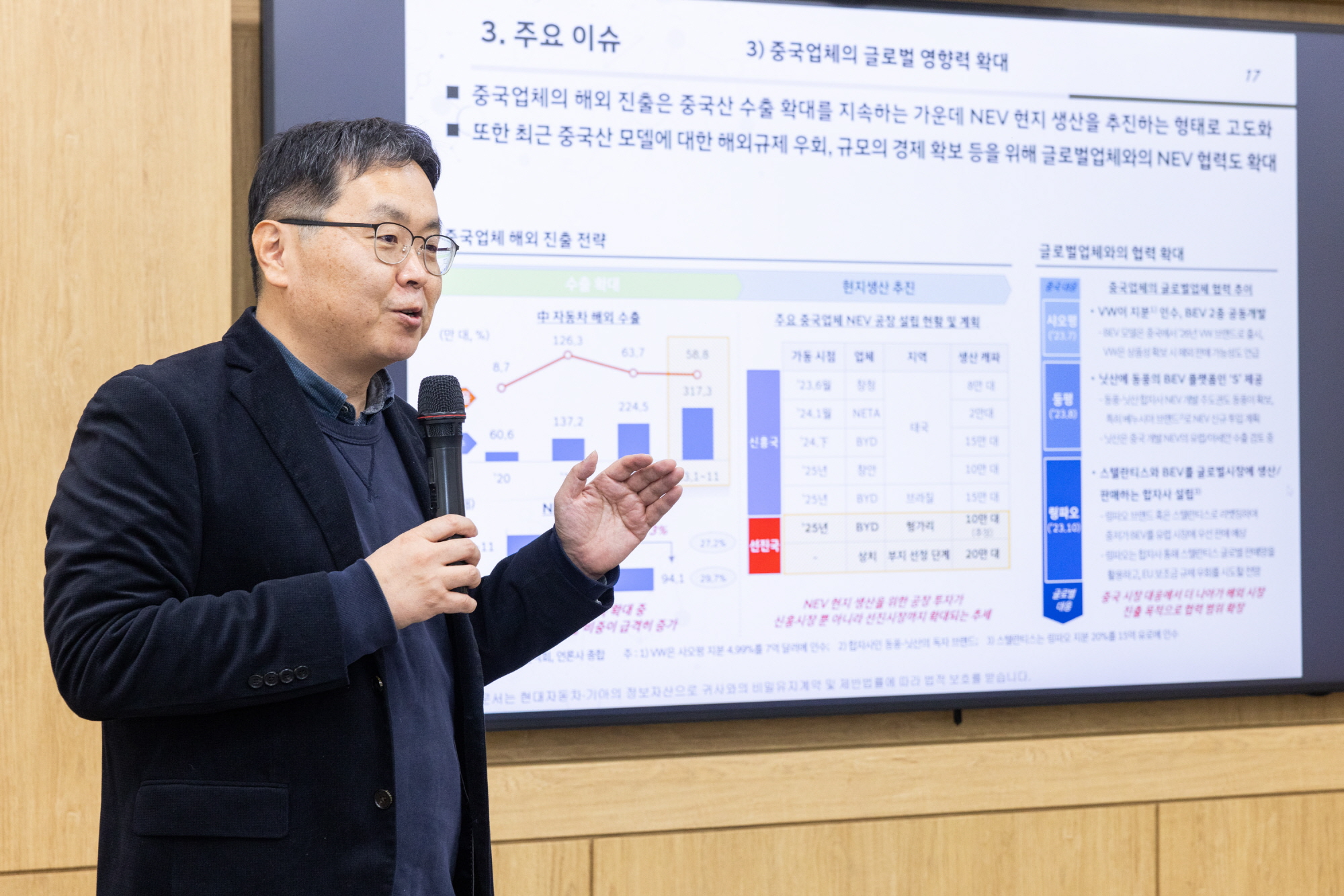
In 2024, it is expected to be a bleak year for global automakers. The expansion of Chinese electric vehicle brands is likely to intensify the competition.
The Korea Automotive Journalists Association held a New Year seminar on January 18 at the Hyundai Motor Headquarters in Yangjae-dong, Seoul, on the theme ‘Review of the Global Automobile Market in 2023 and Outlook for 2024.’
Yang Jinsoo, the Executive from the Economic Industry Research Center of Hyundai Motor Group, emphasized, “This year, the global economy is on thin ice. Concerns about the adverse effects of U.S. tightening, economic slowdown in Europe, and the real estate crisis in China and the domestic market are intertwined,” adding that “the economies of key emerging markets, including Southeast Asia, are expected to stagnate following the major big markets.” He also noted that “this year, the U.S. presidential elections and many other elections are scheduled, so the economic situation could change significantly depending on the election results.”
The prediction from HMG Management Research Center for this year’s global automobile sales is 84.12 million units, a slight increase of 1.6% from the 82.80 million units sold last year.
Economic slowdowns are expected to be severe in the U.S., Europe, and China. Yang mentioned that “the U.S. will be hit by issues like conflicts with China, concerns over IRA re-accounting, and the adverse effects of tightening policies,” and projected that “this year, U.S. automobile sales will rise slightly by 2% to 15.92 million units compared to the previous year.” He forecasted that Europe and China will each sell 14.98 million and 22.09 million units, marking increases of 2.7% and 0.7% year-over-year, respectively, amid manufacturing downturns and real estate market risks.
In the domestic market, the overlapping effects of the financial crisis and the real estate market are expected to lead to a 2.2% decrease, with sales predicted at 1.67 million units. Demand for popular models like the Hyundai Sorento and Kia Carnival is expected to be exhausted in the first half of the year.
Despite the recession, sales of eco-friendly vehicles are expected to maintain levels seen in previous years. Sales of electric vehicles are projected to reach 11.5 million units, reflecting a 24.6% increase from 9.27 million units last year. The aggressive release of electric vehicle models by existing automakers and the establishment of overseas factories for cost-effective Chinese electric vehicles are likely to intensify price competition in the EV market.
In response to the competitive pricing from China, Volkswagen plans to shorten new model development timelines from 50 months to 36 months and adopt Chinese-style development processes, integrating Seat’s Skoda platform and reducing the number of test cars.
As more companies look to adopt Chinese methods in electric vehicle production, Volkswagen has acquired shares in Xiaopeng for joint development, and Nissan plans to produce its domestic electric vehicles using the Dongfeng platform. Stellantis will introduce globally marketed electric vehicles developed in collaboration with Lingpao.
Contact: Lee Sang-jin daedusj@autodiary.kr

